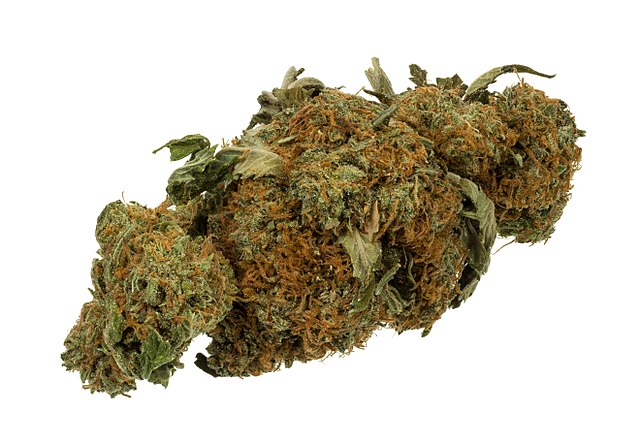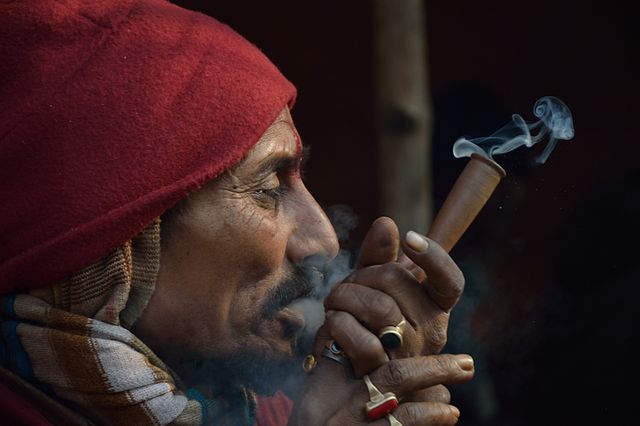A cannabis edible, also known as a cannabis-infused food or simply an edible, is a food item that contains decarboxylated cannabinoids from cannabis extract as an active ingredient. Although edible may refer to either a food or a drink, a cannabis-infused drink may be referred to more specifically as a liquid edible or drinkable. Edibles are a way to consume cannabis. Unlike smoking, in which cannabinoids are inhaled into the lungs and pass rapidly into the bloodstream, peaking in about ten minutes and wearing off in a couple of hours, cannabis edibles may take hours to digest, and their effects may peak two to three hours after consumption and persist for around six hours. The food or drink used may affect both the timing and potency of the dose ingested.
Three hash cakes made with cannabis. Such cakes are often referred to as "space cakes".
Bhang eaters from India c. 1790. Bhang is an edible preparation of cannabis native to the Indian subcontinent. It has been used in food and drink as early as 1000 BC by Hindus in ancient India.
Modern interest in edibles is attributed to Alice B. Toklas and her eponymous 1954 cookbook.
THC infused gummies suitable for sublingual administration. These are 5 milligrams each.
The effects of cannabis are caused by chemical compounds in the cannabis plant, including 113 different cannabinoids such as tetrahydrocannabinol (THC) and 120 terpenes, which allow its drug to have various psychological and physiological effects on the human body. Different plants of the genus Cannabis contain different and often unpredictable concentrations of THC and other cannabinoids and hundreds of other molecules that have a pharmacological effect, so the final net effect cannot reliably be foreseen.
A dried cannabis flower
A man smoking cannabis in Kolkata, India
Bloodshot eye
Aspergillus fumigatus








